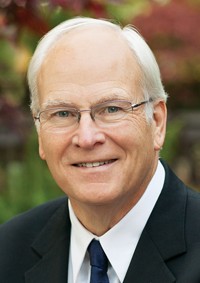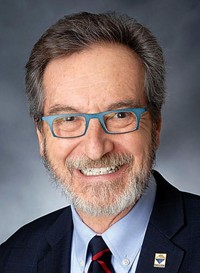Advertisement
Grab your lab coat. Let's get started
Welcome!
Welcome!
Create an account below to get 6 C&EN articles per month, receive newsletters and more - all free.
It seems this is your first time logging in online. Please enter the following information to continue.
As an ACS member you automatically get access to this site. All we need is few more details to create your reading experience.
Not you? Sign in with a different account.
Not you? Sign in with a different account.
ERROR 1
ERROR 1
ERROR 2
ERROR 2
ERROR 2
ERROR 2
ERROR 2
Password and Confirm password must match.
If you have an ACS member number, please enter it here so we can link this account to your membership. (optional)
ERROR 2
ACS values your privacy. By submitting your information, you are gaining access to C&EN and subscribing to our weekly newsletter. We use the information you provide to make your reading experience better, and we will never sell your data to third party members.
Comment
You have the power to change the world through chemistry advocacy
by Heidi Vollmer-Snarr, Member, ACS Committee on Chemistry and Public Affairs
January 30, 2021
| A version of this story appeared in
Volume 99, Issue 4

Kevin Kuhn, chair of the Committee on Chemistry and Public Affairs, invited committee member Heidi Vollmer-Snarr to author this comment as an example of how ACS members are using the society’s advocacy tools to advance science. Vollmer-Snarr is director of advanced undergraduate laboratories at Harvard University.
This past year, science has emerged more prominently than ever, with scientists developing vaccines in record time and advising officials on how to rebound from lockdowns and closures. However, because most of our elected officials are not trained scientists, they need our help as they try to rebuild. Last month, President Joe Biden, Vice President Kamala Harris, and the 117th Congress got to work—individuals who are eager to roll out their varying legislative priorities. They are entering one of the most challenging moments for the US—thousands of Americans die every day from the COVID-19 pandemic, millions of children are struggling in their education because of a lack of reliable broadband service, and our beautiful country is ravaged by the countless effects of climate change. Although substantial, these challenges are not insurmountable. With consistent and reliable contributions from each one of us, we can overcome these crises.
The American Chemical Society has created the Chemistry Advocacy Workshop, an online and free resource for any ACS member who wants to engage policy makers but may not know where to start. The Committee on Chemistry and Public Affairs (CCPA) is responsible for providing advice and recommendations for ACS actions on public policy matters involving the chemical sciences and technologies. CCPA accomplishes this by identifying and analyzing science policy issues that impact these areas, encouraging and facilitating participation by ACS members in science policy issues, and providing oversight for the ACS Public Policy Fellowship program.
When I became a member of CCPA, I was drawn to science advocacy but unsure how to best engage. In 2018, ACS invited me to Washington, DC, to meet with my members of Congress and advocate for chemistry policy priorities. The experience, while initially daunting, was delightful and taught me the value of sharing my scientific expertise with lawmakers who have the power to impact not only my field and career but almost everything in our society. After this advocacy experience, I felt compelled to incorporate science advocacy into my undergraduate chemistry curriculum as a capstone experience for my students. Nothing seems more important than sending them into the world knowing they have a constitutional right to effect change in this way.
With the ACS Chemistry Advocacy Workshop, it was easy to incorporate advocacy into my courses. The workshop takes only 2 h for participants to complete, can be split into small sections, and includes four modules on the basics of chemistry advocacy—what is advocacy, fundamentals of the US government structure, how to engage in congressional advocacy, and effective communications. ACS staff created a closed cohort of the course for my students, including exercises that help me lead conversations about advocacy and help my students contact their elected officials and staff. I have incorporated advocacy training into the last three semesters of my Experimental Chemistry and Chemical Biology class and have seen my students transform from timid to confident advocates for chemistry. At the same time, they are improving their communication skills. Students have engaged with members of Congress and their staff by meeting with them in their offices on Capitol Hill and in Boston, as well as communicating with them on Zoom, over the telephone, and by email. After their advocacy efforts, some students have excitedly notified me that their members of Congress have cosponsored bills that they previously knew nothing about until the students informed them and persuaded them to support the bills. Many students have told me at the end of the semester that advocating for chemistry was the highlight of their undergraduate experience and that they plan to continue engaging with their legislators.
I encourage all ACS members to not only enroll in the Chemistry Advocacy Workshop but also find ways to incorporate advocacy into your courses or work environments. As legislators hear from many of their constituents like you, science and chemistry policy will rise to the top of their list of priorities. To get started, enroll in the advocacy workshop by visiting www.acs.org/chemistryadvocacy.
Once you complete the course, you can find policy issues to advocate for in the ACS 2021 Policy Priorities Agenda (see page 40).Advocating for science, and chemistry specifically, has never been easier or more critical. With only five STEM PhDs in Congress currently, we urgently need chemists to engage.
Views expressed are those of the author and not necessarily those of C&EN or ACS.




Join the conversation
Contact the reporter
Submit a Letter to the Editor for publication
Engage with us on Twitter